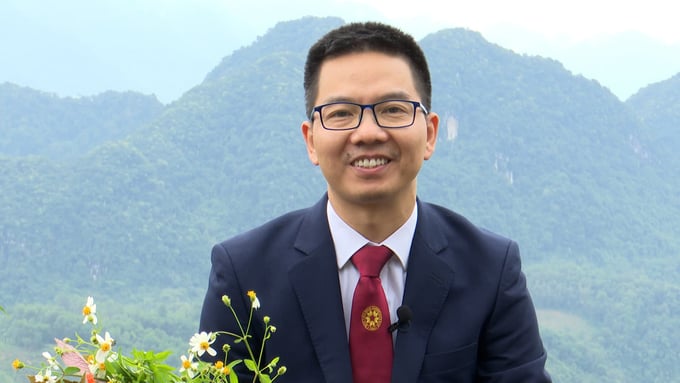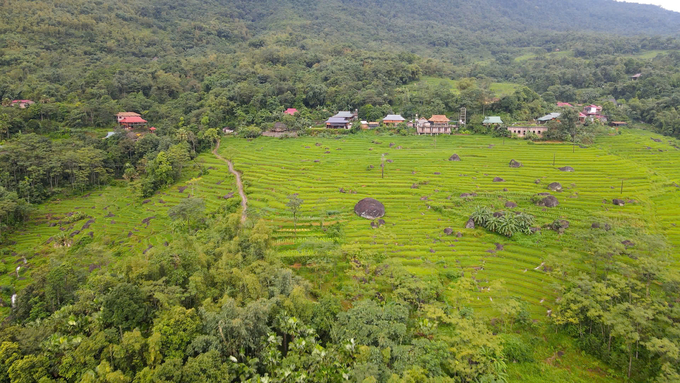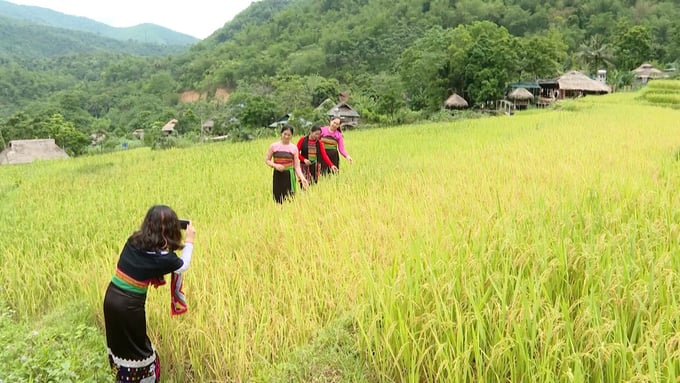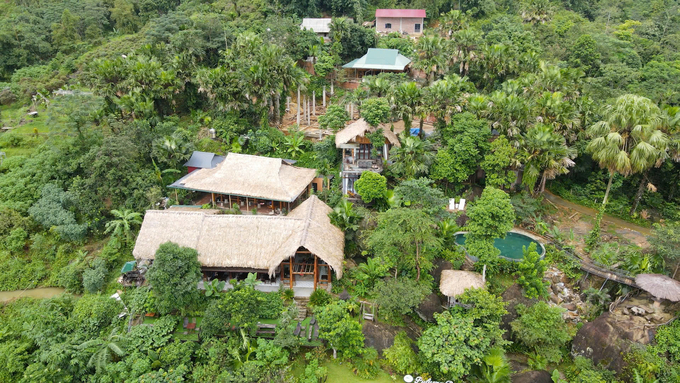May 30, 2025 | 04:47 GMT +7
May 30, 2025 | 04:47 GMT +7
Hotline: 0913.378.918
May 30, 2025 | 04:47 GMT +7
Hotline: 0913.378.918

Dr. Hoang Sy Thinh, Faculty of Tourism and Foreign Languages, Vietnam National University of Agriculture. Photo: Pham Huy.
Dr. Hoang Sy Thinh affirmed: First of all, it can be seen that Vietnam has great potential and advantages in developing agricultural and rural tourism.
Firstly, in today's era, tourism is increasingly becoming an essential need of people, and the need for agricultural and rural tourism is becoming increasingly popular in domestic and international markets. People living and working in big cities and bustling urban areas must find peaceful places to help their souls be calm. And the countryside is the place to meet that need.
Secondly, rural Vietnam has great tourism resources, including agricultural and natural landscape resources, ecological environments, and especially the national cultural identity in the regions. More than 54 ethnic groups living across the country, traditional craft villages, and the cultural identities of each ethnic group and region have contributed to creating a huge rural tourism resource.

Great potential of agricultural and rural tourism. Photo: Pham Huy.
Of course, developing agricultural and rural tourism will encounter difficulties and barriers that need to be removed.
The first barrier is infrastructure. To develop sustainable rural tourism, it is necessary to invest in roads, accommodation facilities, hospitals, clinics, and tourist landscapes and improve food safety and hygiene issues... to serve the essential needs of tourists.
The second is the barrier of awareness and skills of rural tourism workers. Determining the development of agricultural and rural tourism means that an entire community must change from the old way of life to a new, more modern, and civilized way of life, along with the requirements for skills in behavior, service attitude, and understanding of people in the community must also be different.
The next barrier is policy. The Party and the State have issued Resolutions, Programs, and Development Projects for agricultural and rural tourism. Specifically, Resolution 08 of the Politburo considers tourism a spearhead economic sector; Resolution of the Government on critical tasks and solutions to accelerate recovery and accelerate effective and sustainable tourism development; Tourism development strategy to 2030; Sustainable agricultural and rural development strategy for the period 2021 - 2030, vision to 2050; Rural tourism development program in new rural construction for the period 2021 - 2025; Project on developing multi-purpose values of forest ecosystems to 2030, vision to 2050; Rural industry development strategy to 2030, vision to 2045... There are many policies to attract businesses to invest in agricultural and rural tourism and policies to support innovation and digital transformation.

Removing barriers for sustainable development of agricultural and rural tourism. Photo: Pham Huy.
However, bringing policies to life and meeting practical requirements is essential. In reality, at a high level, we may have good policies, along with the Party and State's orientation and policies on rural tourism, that is very clear. Still, the lower the level, the more difficulties that need to be improved in developing agricultural and rural tourism are revealed.
First of all, the solution is to perfect the policy to be genuinely synchronous and unified from the central to the grassroots level. The policy should support localities in developing pilot models, diverse and quality agricultural and rural tourism destination systems with agricultural and rural tourism products with regional characteristics, and exploit the outstanding advantages of rural areas regarding agricultural potential, ecological landscape, and traditional culture.
Accompanying the support policy is a legal corridor, detailed instructions, and the creation of conditions for localities and people to have a basis for developing agricultural and rural tourism. For example, instructions on land procedures and procedures for building facilities on agricultural land. Currently, there is no policy; most localities are still confused, need more substantial improvements, and have detailed instructions to create favorable conditions for localities and farmers to develop agricultural and rural tourism. Next is the solution to train and develop a tourism product system based on exploiting the linkage of tourism and agricultural value chains, diversifying experiences, high quality, meeting the needs of domestic and foreign tourists, forming tours and tourist routes to bring visitors to rural areas... rural tourism force, gradually moving towards professionalism and efficiency.

Developing agricultural and rural tourism goes hand in hand with preserving rural identity and soul. Photo: Pham Huy.
Along with that are programs and activities to promote, promote, and introduce destinations and agricultural and rural tourism products; integrate and coordinate the organization of trade promotion activities; introduce agricultural products and OCOP products; promote the consumption of agricultural products through tourism...
Finally, the solution to infrastructure investment must always be one step ahead of reality. This issue requires synchronous support policies so that rural infrastructure can meet the requirements of tourism development while still preserving cultural identity and the soul of the village and not being affected or disrupted by the market economy.
From fundamental solutions, there are also soft solutions such as attracting investment, encouraging young people to study and be trained appropriately, and bringing aspirations and knowledge to return to their hometowns to develop agricultural and rural tourism. Human and indigenous resources will create a significant breakthrough in developing agricultural and rural tourism strongly and sustainably.
Translated by Huong Giang

(VAN) Ms. Nguyen Thi Dung, Deputy Director of Ngoc Hoang Cooperative, shared about the journey of bringing dragon fruit to Europe, achieving annual revenues in the billions of VND.

(VAN) Bamboo products from Thang Tho Bamboo Cooperative have reached many countries around the world, while also creating jobs for local workers.

(VAN) The Management Board of Con Dao National Park reported that a green sea turtle, tagged in the Philippines, has traveled thousands of kilometers to lay 84 eggs on Bay Canh Islet.

(VAN) Green technology is paving a new path for sustainable aquaculture in the Mekong Delta in particular and across the country in general, helping reduce emissions and adapt to climate change.

(VAN) On May 27, La French Tech Vietnam (the French startup and innovation community in Vietnam) held the French Tech Summit Vietnam 2025.
/2025/05/27/4731-2-223159_980.jpg)
(VAN) No votive paper, no styrofoam, no plastic bags, no plastic bottles, and no single-use plastic trays are the key rules tourists should keep in mind when visiting Con Dao.

(VAN) In the fight against plastic pollution, Vietnam has been demonstrating a proactive, pioneering, and active role in addressing the greatest environmental challenge today.